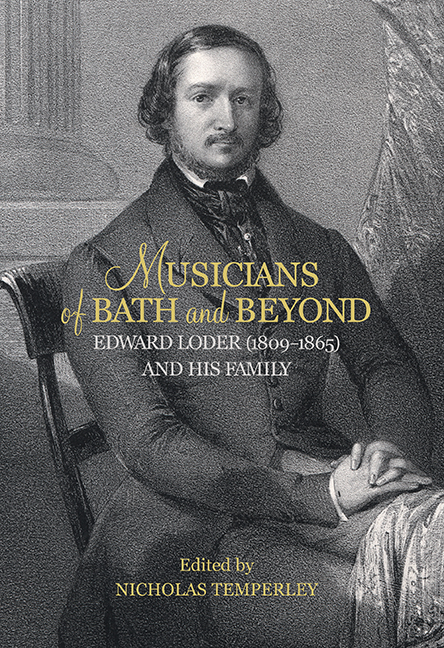Book contents
- Frontmatter
- Contents
- List of Illustrations
- Acknowledgments
- Notes on Contributors
- The Loder Family Tree
- Abbreviations
- Introduction
- PART ONE The Musical Profession in Early Nineteenth-Century England
- PART TWO The Loder Family
- PART THREE The Music of Edward Loder
- EPILOGUE The 1966 Revival of Raymond and Agnes
- Select Bibliography
- Index of Edward Loder’s compositions
- General Index
- Miscellaneous Endmatter
9 - ‘A Magnificent Musician’: The Career of Kate Fanny Loder (1825–1904)
Published online by Cambridge University Press: 04 June 2021
- Frontmatter
- Contents
- List of Illustrations
- Acknowledgments
- Notes on Contributors
- The Loder Family Tree
- Abbreviations
- Introduction
- PART ONE The Musical Profession in Early Nineteenth-Century England
- PART TWO The Loder Family
- PART THREE The Music of Edward Loder
- EPILOGUE The 1966 Revival of Raymond and Agnes
- Select Bibliography
- Index of Edward Loder’s compositions
- General Index
- Miscellaneous Endmatter
Summary
WOMEN who became professional musicians during the early years of Queen Victoria's reign often pursued careers as performers, at least for a while, but primarily relied on teaching to earn a living. Yet an increasing number of females turned to composing, thanks in part to the opening of the Royal Academy of Music (RAM) in 1823. Kate Loder followed those three paths – performer, composer, and teacher. Her career as a piano soloist extended until age twenty-nine, just over two years after her marriage, when she gave up public performance. Her activities as a teacher and, to a lesser extent, as a composer continued for another forty years.
When J. A. Fuller Maitland published a history of nineteenth-century English music in 1902, he classified Loder as one of the country's distinguished native pianists. Furthermore, he considered her among the precursors to such prominent performers as Agnes Zimmermann, Fanny Davies, Leonard Borwick, Frederic Lamond, Frederick Dawson, and Adela Verne. In an article in 1883 that examined women in music, especially those who composed, Stephen Stratton recognised Kate Loder alongside a dozen other native women, including Alice Mary Smith, Clara Macirone, and Elizabeth Stirling. Loder's activities as a teacher ranged from private students to a faculty position in both piano and harmony at the RAM. One of her private composition pupils, composer and conductor Sir Landon Ronald, paid tribute to her in his 1922 memoirs as ‘a magnificent musician’. The foundations for her musical achievements lay with the talented family into which she was born and the early musical education they provided for her.
❧ Early Years and Musical Training
Kate Fanny Loder was born at Bath on 21 August 1825 to George Loder the elder (c. 1794–1829), a flute teacher, and his second wife, organist and piano teacher Frances Elizabeth Kirkham (1802–50). George Loder died when Kate was just three years old, but he had made provisions for his children in his will. The sons, George (1816–68) and Alfred (1824–53), were to be apprenticed and eventually taken into the family music shop at 1 Pulteney Bridge, Bath.
- Type
- Chapter
- Information
- Publisher: Boydell & BrewerPrint publication year: 2016

